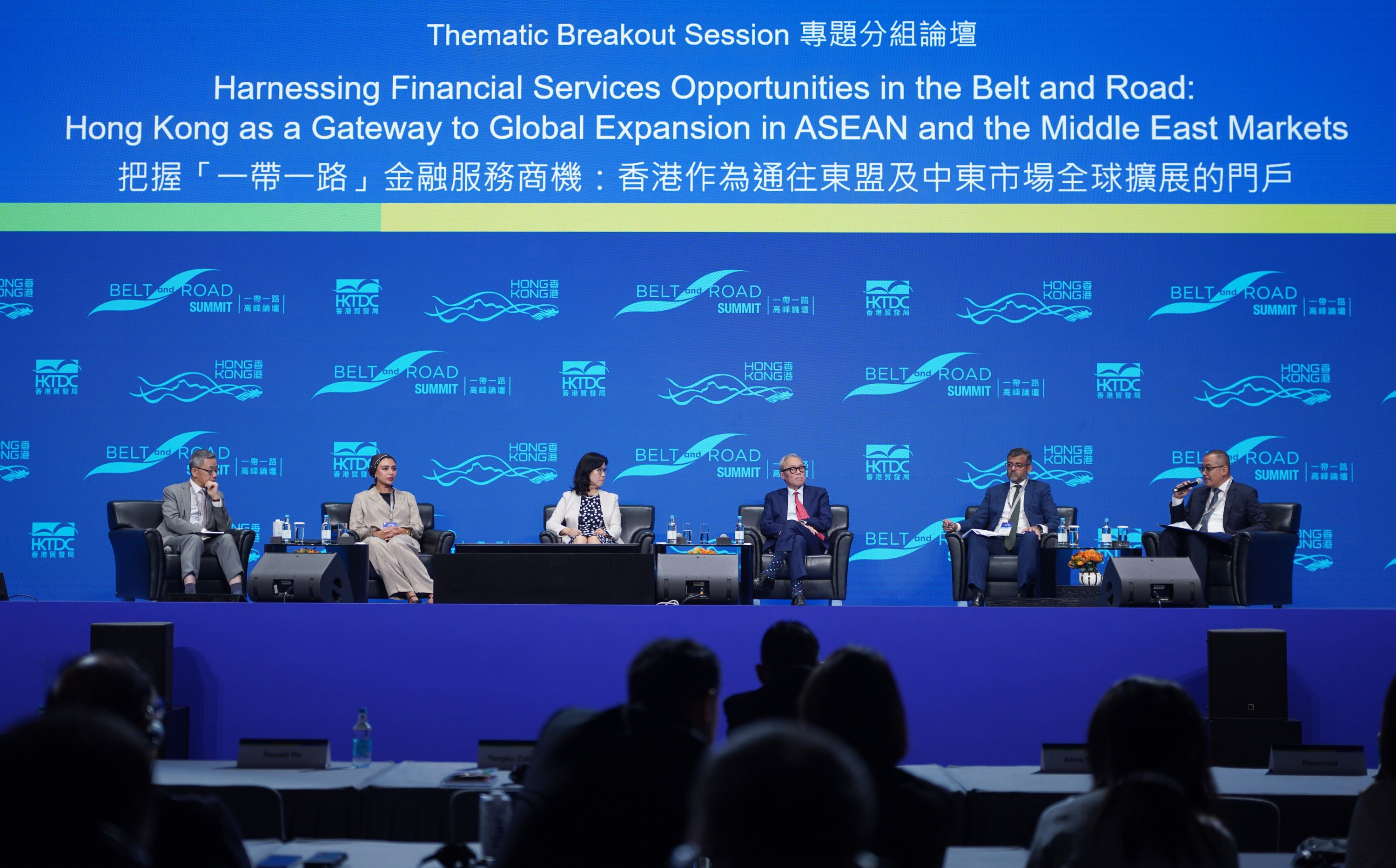
HONG KONG – Officials and experts said on Thursday that it is “high time” Southeast Asia and the Middle East tapped Hong Kong’s long-term fundamentals in business and finance by expanding cooperation on multiple fronts as these economies’ rosy growth outlook turbocharges professional services demands.
They made the remarks during the two-day Belt and Road summit on a panel discussion themed “Harnessing Financial Services Opportunities in the Belt and Road: Hong Kong as a Gateway to Global Expansion in ASEAN and the Middle East Markets”.
Southeast Asia — a key part of China’s massive infrastructure project Belt and Road Initiative — performed impressively in the second quarter, with GDP increasing in all countries, according to global consulting firm McKinsey & Company. Malaysia, the Philippines, Thailand, and Vietnam logged the highest year-on-year growth over the previous four quarters. The oil-rich Middle East has been speeding up efforts to diversify its economy.
Uniquely positioned as a global financial services hub, Hong Kong boasts “long-term fundamentals” that ensure its role in contributing to the economies involved in the BRI, Dauwood Malik, a member of the Middle East advisory group at the Financial Services Development Council, said at the ninth Belt and Road Summit.
These fundamentals include its business-friendly environment, a robust common law system, a deep pool of professionals and open financial markets, which are characterized by transparency, and efficiency in a very high degree of quality regulations, said Malik, who is also a managing partner at Clifford Chance in Hong Kong.
Addressing the summit, Andrew Gan, an independent director of the Philippines Stock Exchange, said there is broader space for cooperation between the bourses of the Philippines and Hong Kong, in particular in derivatives and sustainable investment.
He said the Philippines has been a long-only market for an extended period, and that it would be interesting to work together with Hong Kong to explore short-selling and derivative markets. Also, opportunities related to environmental, social, and governance (ESG) issues are showing great potential as the Southeast Asian country “takes it very seriously”, said Gan.
Cahyo R. Muzhar, director-general of legal administrative affairs at the Ministry of Law and Human Rights of Indonesia, said the country’s establishment of social enterprises is a major area where Hong Kong’s strength in professional services could play an indispensable role.
According to Muzhar, Indonesia is in the process of laying down the legal framework for social enterprises — a type of business that combines profitability with the objective of addressing social or environmental issues. These businesses are normally micro, small, or medium-sized companies that are desperate for financing.
On that note, Hong Kong as a vibrant business hub is a role model to share its experience with Indonesia on how to attract foreign investors, Muzhar said.
Tengku Zafrul Aziz, minister of investment, trade, and industry of Malaysia, told the summit that Hong Kong and Malaysia ought to explore the huge potential of the Islamic compliance market together, citing an estimate that 60 percent of the world’s Muslims are in Asia. “This goes beyond just food and finance, but also tourism, beauty products and so much more.”
Meanwhile, industrial talent should be a focus of attention in closer collaboration as artificial intelligence and digitalization will be crucial to all economies, Tengku said, adding that more efforts should be made for collaboration involving university consortiums and joint research funding between the two economies.
Laila Al-Jefairi, director of the professional services sector at Qatar Financial Centre, said the Middle Eastern state has been pursuing closer ties with Hong Kong in knowledge and economic exchange.
“Through the financial center, we offer a platform that allows the company from Hong Kong to easily access not only the Qatar market but also the Middle Eastern and African markets,” she said.


